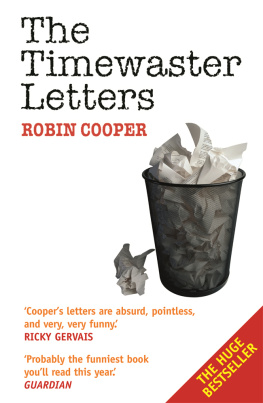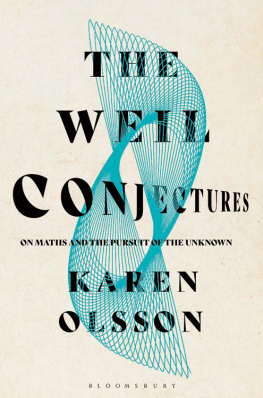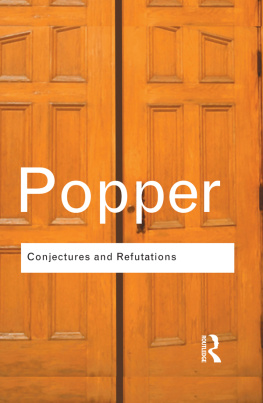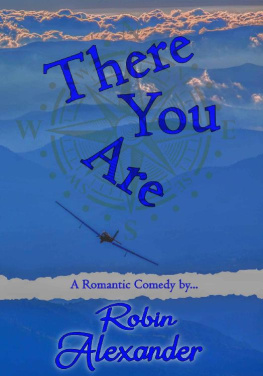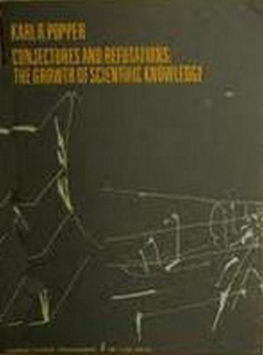Conjectures & Confrontations
Other Books by Robin Fox
The Keresan Bridge:
A Problem in Pueblo Ethnology
Kinship and Marriage:
An Anthropological Perspective
The Imperial Animal (with Lionel Tiger)
Encounter with Anthropology
Biosocial Anthropology (editor)
The Tory Islanders:
A People of the Celtic Fringe
The Red Lamp of Incest:
A Study in the Origins of Mind and Society
Neonate Cognition:
Beyond the Blooming Buzzing Confusion (editor with Jacques Mehler)
The Violent Imagination
The Search for Society:
Quest for a Biosocial Science and Morality
Reproduction and Succession:
Studies in Anthropology, Law and Society
The Challenge of Anthropology:
Old Encounters and New Excursions
Conjectures & Confrontations
SCIENCE, EVOLUTION, SOCIAL CONCERN
ROBIN FOX
First published 1997 by Transaction Publishers
Published 2017 by Routledge
2 Park Square, Milton Park, Abingdon, Oxon 0X14 4RN
711 Third Avenue, New York, NY 10017
Routledge is an imprint of the Taylor and Francis Group, an informa business
Copyright 1997 by Taylor & Francis
All rights reserved. No part of this book may be reprinted or reproduced or utilised in any form or by any electronic, mechanical, or other means, now known or hereafter invented, including photocopying and recording, or in any information storage or retrieval system, without permission in writing from the publishers.
Notice:
Product or corporate names may be trademarks or registered trademarks, and are used only for identification and explanation without intent to infringe.
Library of Congress Catalog Number: 96-47505
Library of Congress Cataloging-in-Publication Data
Fox, Robin, 1934-
Conjectures and confrontations : science, evolution, social concern / Robin Fox.
p. cm.
Includes bibliographical references and index.
ISBN 1-56000-286-7 (cloth : alk. paper)
1. AnthropologyPhilosophy. 2. Social sciencesPhilosophy. 3. Social evolutionPhilosophy. I. Title.
GN468.F69 1996
301.01dc20
96-47505
CIP
ISBN 13: 978-1-56000-286-4 (hbk)
To
Sir Raymond Firth
Sir Karl Popper
and all those teachers, colleagues,
and fellow students, who made the
old London School of Economics
such a transforming influence for
me and so many of my generation.
Contents
This is the third of a trilogy of books of essays that I rashly promised Irving Louis Horowitz of Transaction Publishers. (It is in fact the fourth of a series that began with The Seach for Society, [Rutgers University Press], 1989, and the fifth if we count the original Encounter with Anthropology, 1973, now reissued with Transaction, 1991.) The previous two, Reproduction and Succession (1993) and The Challenge of Anthropology (1994) contained both published and unpublished pieces, the latter often being items resurrected from the graveyard of abandoned Festschriften. As a consequence they ranged in time of writing from the late sixties to the near present. This volume is different: these are all published or commissioned pieces and they are no older than 1990. This is not to say they represent the very latest in what I want to write. I will probably only get around to that when I retire. No. They represent something more interesting perhaps because they were all pieces I was asked to write. Thus they are like a collection of term papers: I was in effect given a series of essay topics and asked to demonstrate how I would deal with them from my particular biosocial science perspective. Discuss the apparent paradox that the more efficient bureaucracies become in meeting human needs the more effectively they frustrate those needs. Also, I am asked, presumably as a result of achieving near senescence, to write encyclopaedia entries and state of the art pieces more often than I would like. Discuss the present state of the social sciences. To what extent do they reflect the state of society itself? Particularly in an age when our students, and hence younger colleagues, seem not to be educated in the history of their subject, or in very much else for that matter, I suppose such obligations cannot be dodged. It is not altogether their fault. It is part of the general fragmentation and ideologization (may one say that?) of the social sciences about which I have already complained at length and to little effect. But it is also no secret that I have always tried to insist that an evolutionary perspective is ultimately the only one that will hold the fragments together, and the essays included herein are an attempt to show what that continues to mean to me.
Those in the first part are largely concerned with the first set of exam questions to do with the evolutionary perspective, and those in the second part are largely state of the art exercises. Since I have also expressed a number of ideas on both subjects and some others in various interviews, I have included two of these, in the French tradition of entretiens avecThese are more by way of oral examinations, and I guess are interesting if only because they show how someone with my orientation thinks on his feet when presented with a question. Of course, what you get here is several times removed editorially from the original, and a good deal was left on the cutting floor. Also, particularly with visual interviews, so much that could be conveyed by attitude, gesture, and body language, is not representable in print, so sometimes adjustments have to be made to clarify the meaning. (How do you write an expressive shrug accompanied by an ironic smile?) But the result is true to the original, even if it does make one sound more eloquent and coherent than one actually is. (But when faced with raw transcripts the editing is definitely necessary. I once had a talk transcribed in which I frequently used the phrase the hammer drives the booms and it was only the context which reminded me that what I was talking about were the hamadryas baboons.)
Also, ever since Encounter with Anthropology, I have included autobiographical comment along with the theoretical stuff, to give it some context and to illustrate how at least one social scientist has clung onto the roller coaster of current ideas. This has always been well received, somewhat to my surprise, perhaps because it gives some life to dem dry bones of social theory, as well as some comic relief. So the interviews here continue the tradition in another form. Purists may argue that these personal musings and opinions should be kept distinct from the real stuff. But the real stuff is always embedded in a real life and is both influenced by and influences it. The major issues of policy and living are also the major issues of the social sciences, and one cannot divorce ones own social existence from ones theories about it. This is not to say one cannot be objective, but that the subjective motives strongly influence ones decisions concerning what to be objective about (if you follow). I have framed the book between two halves of the interview from




